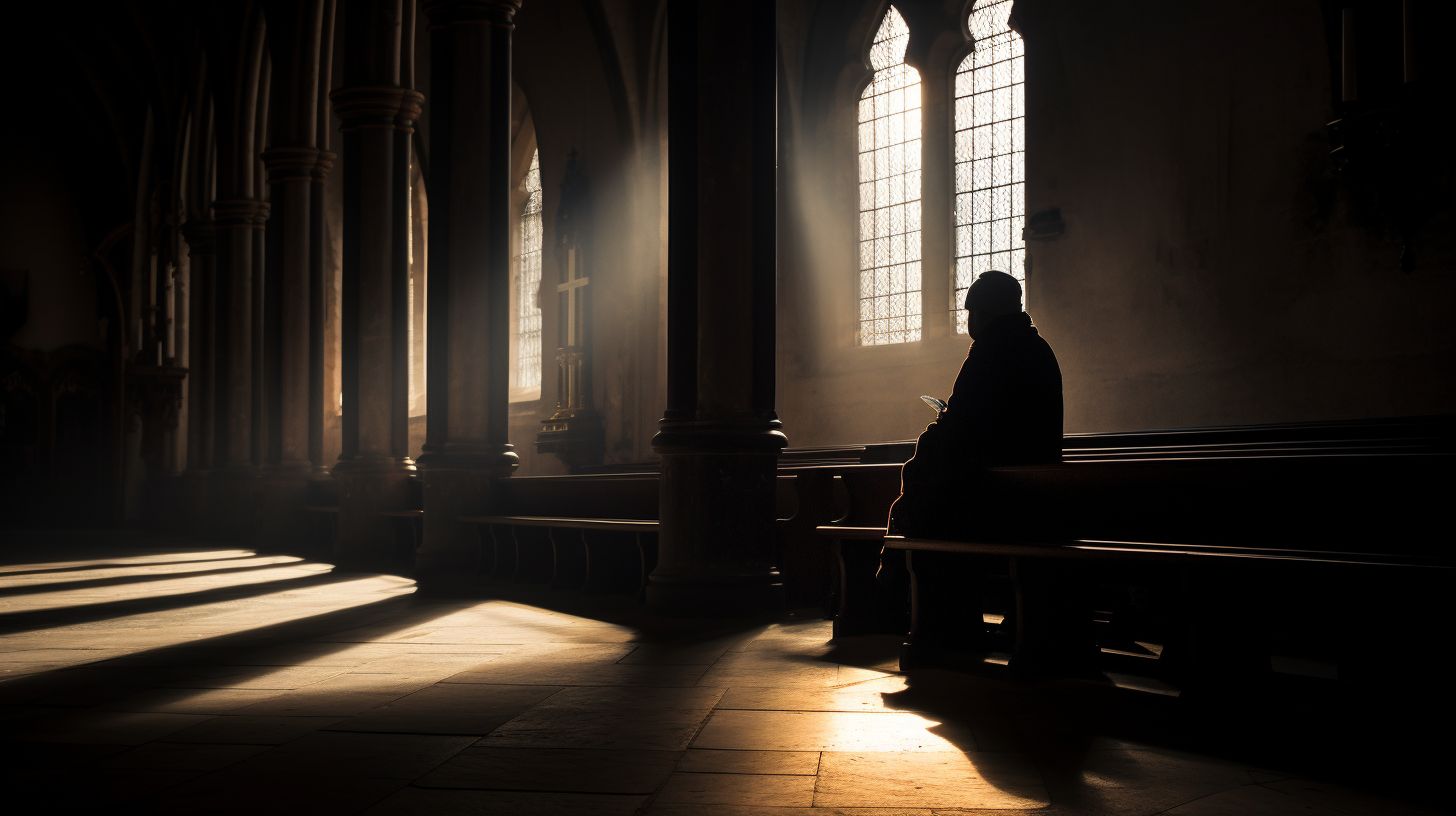
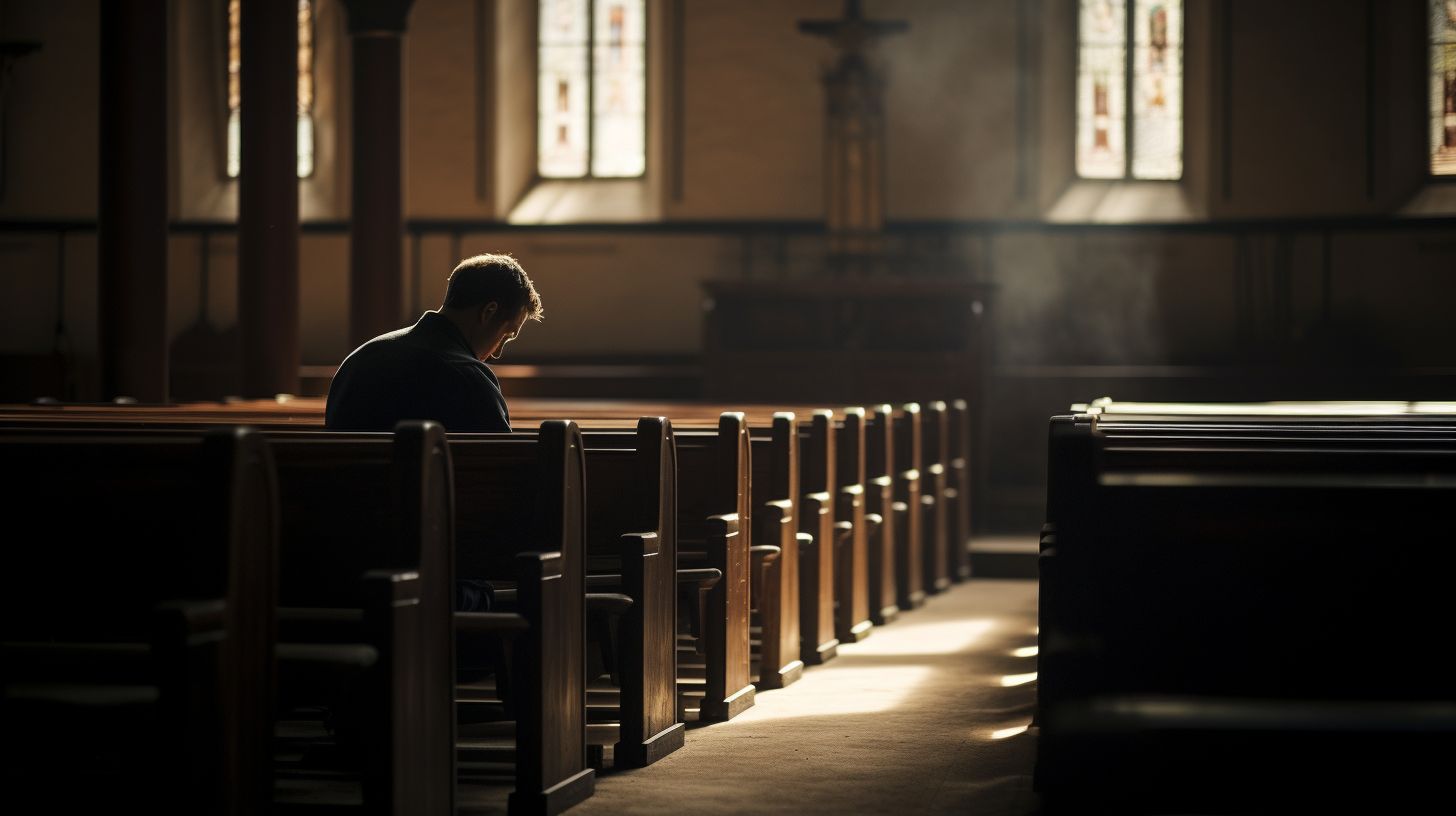
For many, the intersection of faith and personal well-being is a delicate balance fraught with potential for harm. Religious trauma emerges as an unrecognized yet profound source of emotional and psychological pain.
This article peels back layers to reveal the complexities behind religious trauma and provides insights into recognizing symptoms and finding pathways to healing. Discover hope—read on for support in navigating this challenging journey.
Understanding Religious Trauma
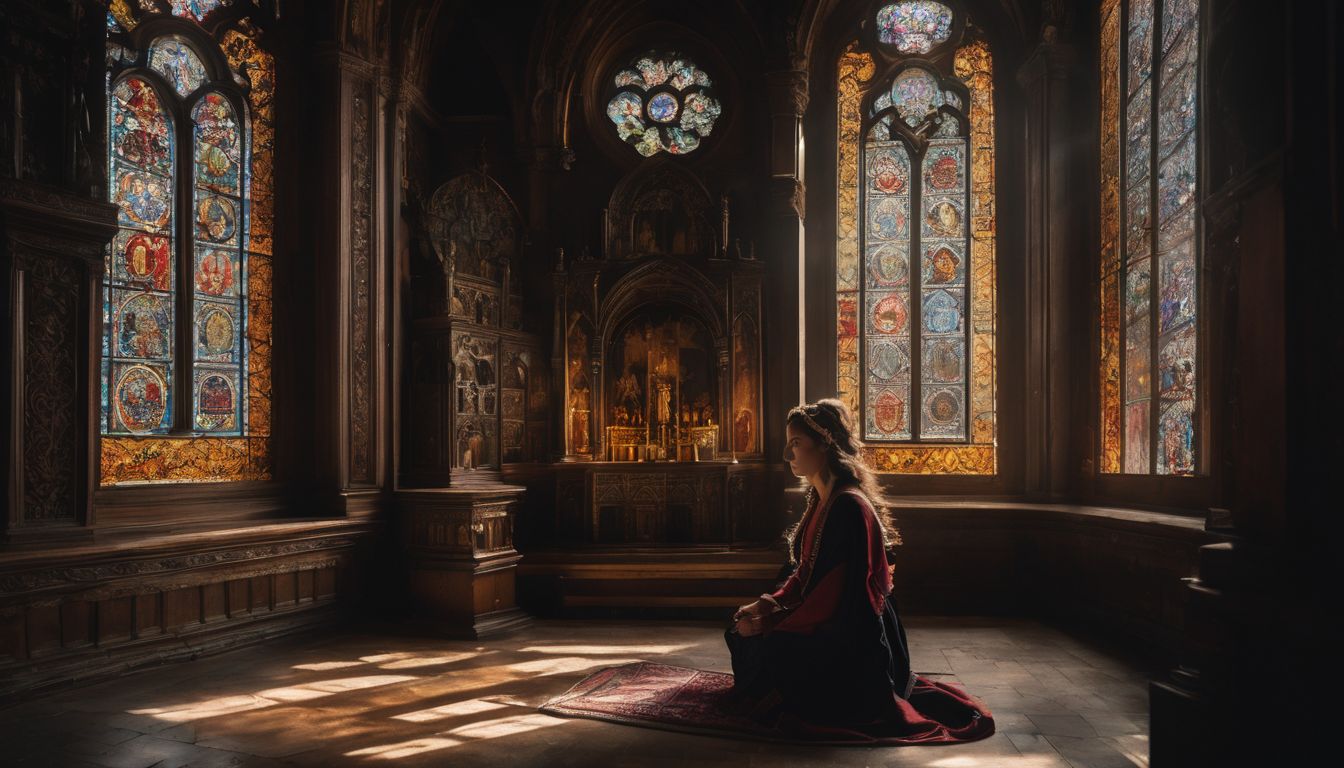
Religious trauma happens when someone’s faith hurts them. This can be from bad teachings or harm done by leaders in the religion. It feels like a deep wound inside that comes from what you learned about God, rules, and how life should be because of your beliefs.
People who have religious trauma may find it hard to trust themselves or others. They might feel afraid a lot or very sad without knowing why. Some get nightmares or flashbacks of the bad things that happened to them.
Others feel all alone, even if they are with people who care about them. Their minds and hearts hurt because their religion was supposed to help but ended up causing pain instead.
Causes of Religious Trauma
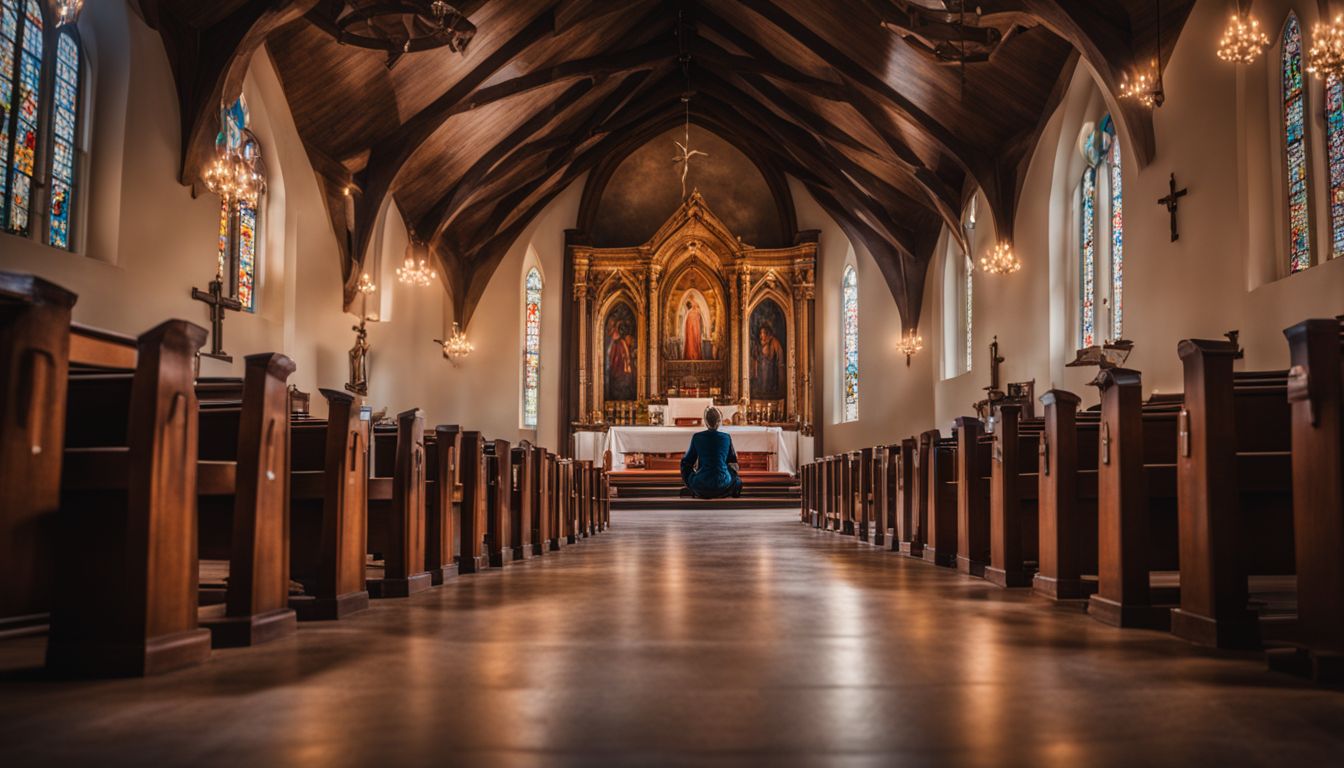
Growing up in a strict or extreme religious environment might lead to harmful effects. In these places, people can face toxic teachings that hurt their mental and emotional well-being.
If a child faces neglect, abuse or scary ideas within their religion, they may develop trauma from it. These experiences are often hard for kids and can follow them as they grow up.
Making the big decision to leave one’s faith community is tough too. It can shake someone’s world, making them feel lost without their usual support system. They have to figure out who they are all over again without the beliefs and rituals that were once central to their life.
This sudden change can be deeply traumatic and leave lasting scars on someone’s identity.
Symptoms of Religious Trauma

Religious trauma can hurt a person in many ways. It may make someone feel scared, sad, alone or confused. Some people have bad dreams, find it hard to trust others or feel lost without their religion.
They might stop enjoying things they used to like.
It’s also common for these feelings to show up in the body. People may have headaches, stomachaches, or feel tired all the time. Their hearts might beat fast when they think about their experiences with religion.
It can be tough dealing with all of this for anyone who feels hurt by their faith.
Religious Trauma Syndrome: An Overview
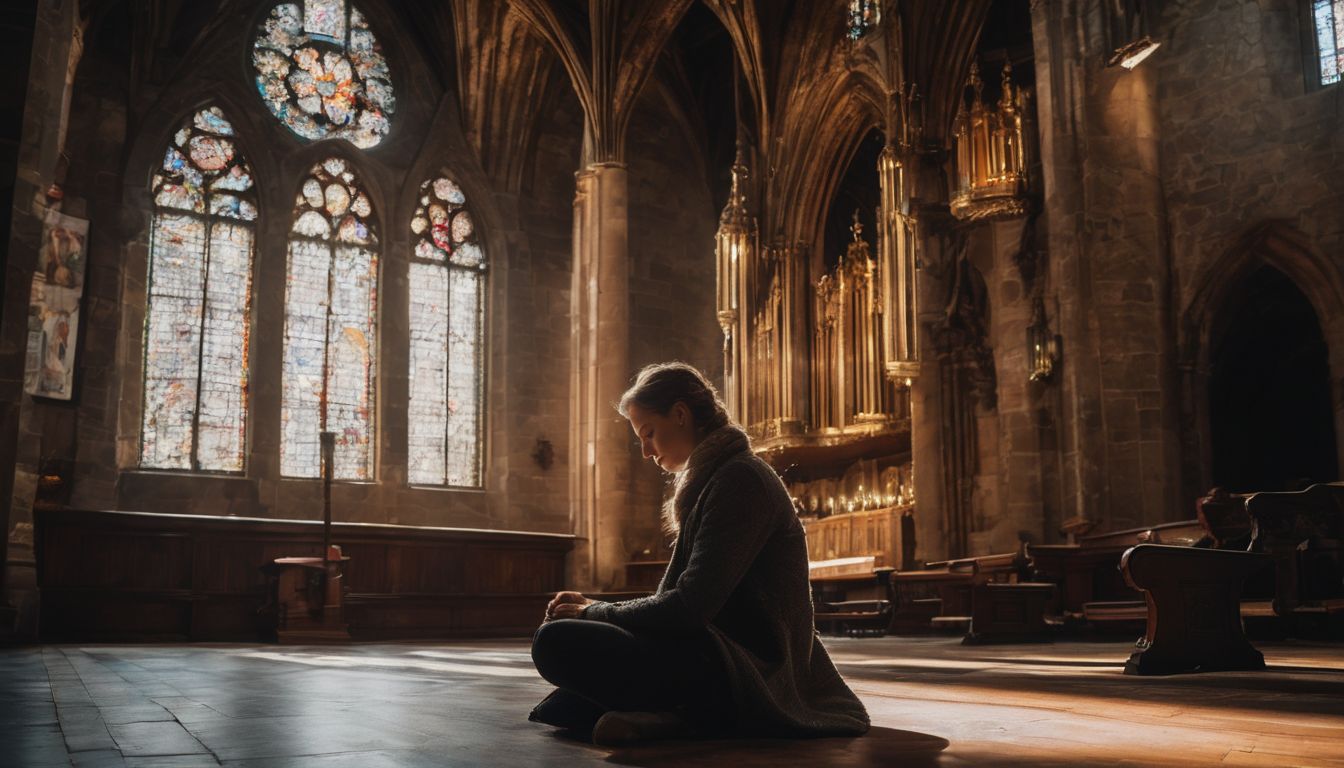
Navigating life’s challenges becomes even harder when grappling with the hidden wounds of religious trauma. This condition arises from harmful experiences within a religious context, leaving deep emotional and psychological scars.
Our focused article aims to unravel this complex issue, providing clarity on its causes, symptoms, and pathways to healing. Discover hope as we take you through understanding and overcoming religious trauma.
Moving into our next section, let’s delve deeper into what constitutes Religious Trauma Syndrome: An Overview.
Lasting Effects of Religious Trauma
Religious trauma can leave deep marks on a person’s life. Long after they leave a harmful religious setting, they might still feel its effects. Some people find that their trust in others and the world is broken.
Others may carry heavy feelings like guilt and shame every day. Even happy times or celebrations can make them upset because these events remind them of painful past experiences with religion.
It’s also hard for them to decide what they believe in or trust when it comes to spiritual matters. They often doubt themselves and feel alone, even if there are people around who care about them.
People hurt by religious trauma need time, patience, and support to heal their hearts and minds. With help from friends, family, or mental health professionals, someone can start to rebuild their sense of safety and learn how to enjoy life again without fear or guilt tied to their past religious experiences.
The Impact of Religious Trauma on LGBTQ Individuals
LGBTQ individuals often face tough times with religious beliefs that hurt them. They might feel deep shame, fear of being punished by God, and even get pushed into harmful therapies to change who they are.
This can leave scars on their minds and hearts for a long time.
These experiences can make LGBTQ folks feel stuck with heavy emotions like guilt and fear. They may also feel cut off from happy moments in their culture because of who they love or how they identify.
It’s sad that the pain from these moments can look a lot like other troubles of the mind, such as feeling super worried or really down.
Healing From Religious Trauma: Effective Strategies
8. Healing From Religious Trauma: Effective Strategies.
Embarking on a journey toward healing from religious trauma involves embracing strategies that empower personal growth and emotional liberation. This process is tailored to individual experiences, fostering resilience and enabling one to reclaim a sense of self beyond the confines of past religious indoctrination.
Recognize Your Religious Trauma
Seeing the signs of religious trauma is a big step. You might feel hurt by harsh words or forced into ceremonies that felt wrong. Maybe you were told to give money in ways that made you uncomfortable.
These are all things that could cause deep pain, and it’s okay to admit they happened to you.
Knowing these hurts can help you heal. Accepting what went wrong doesn’t mean giving up your faith—it means starting to figure out what feels true and right for yourself. It’s a chance to feel better and take control over how religion fits into your life without fear or pain standing in your way.
Separate Your Personal Values From Your Religious Beliefs
After you recognize your religious trauma, it’s important to think about what matters to you. Your own values might be different from what your religion taught you. This can be hard but it is a big step in healing.
You get to choose what is good and right for you.
Sometimes, the rules of a religion don’t fit with how we feel inside. For example, if love and kindness are very important to you, but your church says bad things about LGBTQ people, this can hurt deeply.
Finding out what beliefs match your true self will help heal your heart and mind. It shows that you are in charge of your life and happiness, not someone else’s ideas or rules.
Get Connected to Healthy Supports & Community
Finding people and groups who understand what you’re going through can make a big difference. Places like Reclamation Collective or Recovering from Religion have others who’ve felt the same pain.
They offer peer support, which means you get to talk with someone who has been in your shoes. Joining these communities can help you feel less alone and give you new friends who really get it.
You might also want to look for a therapist through Secular Therapy or use books written by different authors about religious trauma. These resources open up new ways of thinking and healing.
They also offer tools that can help guide your path forward towards feeling better.
– Explore What You Believe
Explore What You Believe
Think about what is true for you now. You might have grown up with certain ideas from your religion that don’t fit how you feel today. It’s okay to look at those beliefs and see if they help or hurt you.
Exploring these thoughts can be hard, but it’s an important step to heal from religious trauma.
You get to choose your path. Take time to learn new things, ask questions, and find out what makes sense for you. This could mean taking parts of your old beliefs and mixing them with new ones, or even starting fresh with a whole different outlook on life.
Trust yourself as you figure out what beliefs support your mental health and happiness.
Create Healthy Boundaries in Relationships
Creating healthy boundaries in your relationships is a big step forward after dealing with religious trauma. It helps you say “no” when you need to and lets you feel safe and respected.
Imagine knowing what is okay for you and what isn’t, then telling others clearly. This skill keeps your emotions and thoughts in check so they don’t get mixed up with someone else’s.
Sometimes after hard times with religion, it might be tough to know where lines should be drawn with friends, family, or partners. That’s why therapy can play a big part. A therapist knows about religious trauma and can teach you ways to make strong boundaries.
They help you find out what matters most to you, so it becomes easier for you to decide who fits into your life and how they do that. Talking things out can boost self-respect as well as self-confidence because being true to yourself is key for healing.
Identify Your Hopes for the Future
Think about what you want your life to look like without the hurt from past religious experiences. Dream big and let yourself hope for a future where you are happy and at peace. This means making new goals that are all about you, not tied to painful beliefs or memories.
When you have these dreams in mind, it’s easier to move forward.
You can start small by picking one thing that makes you feel good and build on it. Maybe it’s taking a walk, reading a book, or talking with friends. As these small steps add joy to your life, bigger hopes become clearer.
You might think of a career change, traveling places where you find peace or starting fresh hobbies. Keep focusing on these positive plans because they lead to better tomorrows.
Seek Therapy for Religious Trauma
Once you have a clear picture of your future without the weight of past religious hurt, it’s important to take steps toward healing. Therapy can be a strong tool in dealing with religious trauma.
Mental health professionals understand how to help you work through painful feelings and memories. They use special ways to care for your mind like EMDR and somatic therapy. These therapies can help ease the pain from bad experiences connected to religion.
Going to see a therapist gives you space to talk about what hurts in a safe place. They listen and don’t judge, so you can share all parts of your story—even the ones that are hard to talk about.
The right therapist will guide you as you learn new ways to think about yourself and what happened in your past. This helps make room for more peace and joy in your life today and tomorrow.
Know That You Are Not Alone
Healing from religious trauma can feel like a lonely path, but many others share your experience. You are part of a large community that understands and supports each other. It’s normal to feel isolated when dealing with the heavy weight of spiritual abuse or questioning deep beliefs you were taught.
But around the world, there are people just like you who have walked this difficult journey. They found strength in numbers and comfort knowing they weren’t facing their struggle by themselves.
Connecting with these folks can build up your courage and show you that moving forward is possible. Whether it’s through online forums, support groups, or therapy sessions with professionals trained in religious trauma syndrome (RTS), CPTSD, or post-traumatic stress disorder – help is available.
Next up, let’s look into valuable resources that can aid your recovery from religious trauma.
Resources to Support Recovery From Religious Trauma
Finding help for religious trauma is important. Many places offer support and understanding.
- The Reclamation Collective provides a space where those hurt by religion can heal. They understand religious harm and help people connect with others who feel the same.
- Secular Therapy helps find therapists who respect your beliefs. They make sure your therapist won’t push any religion on you.
- Recovering from Religion offers tools to deal with doubts about faith. Here, you can talk freely about your struggles after leaving a religion.
- Post-Mormon Mental Health gives specialized support for ex-Mormons. This group knows what it’s like to leave the Mormon church and can guide you through it.
- Secular Organizations for Sobriety focuses on recovery without religion. If you need help with drinking or using drugs, they can support you without using faith.
- Black Nonbelievers assist people of African descent who leave religion. They provide care that understands the unique challenges Black individuals may face.
- Hispanic American Freethinkers offer support to Hispanic communities. They address cultural and religious issues in a respectful way.
- The Religious Trauma Institute conducts research and education on religious trauma. They aim to spread knowledge and create resources for those affected.
Conclusion
Religious trauma can hurt your mind and heart. It comes from scary religious experiences that control or harm you. This pain might make you feel bad, confused, alone, or scared. You can heal by understanding what happened to you and getting help from friends, books, or therapists who care.
There are many stories and guides that can show you a way out of the pain. Believe in yourself; brighter days are ahead as you work towards healing your spirit and life.


